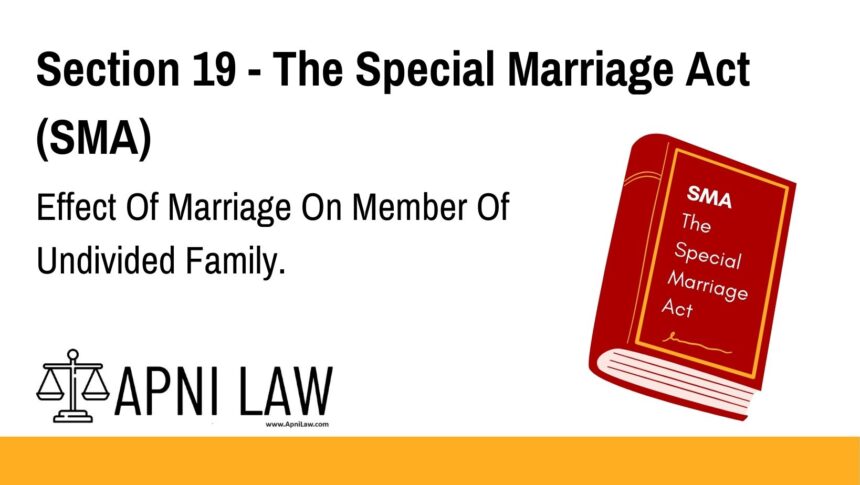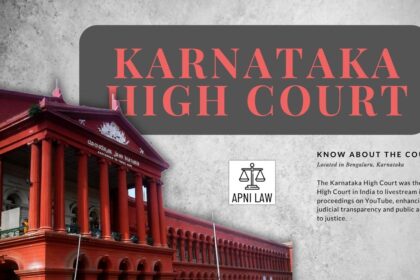Code: Section 19 of The Special Marriage Act (SMA)
Section 19: Effect of Marriage on Member of Undivided Family
If a member of an undivided family follows the Hindu, Buddhist, Sikh, or Jaina religions, their marriage under this Act will result in the severance of their connection from the family.
Explanation of Section 19 of the Special Marriage Act (SMA)
Section 19 of the Special Marriage Act (SMA) addresses how marriage affects individuals who are members of an undivided family, particularly those who follow certain religions:
- Marriage and Undivided Family: When a member of an undivided family who follows the Hindu, Buddhist, Sikh, or Jaina religions marries under this Act, it causes a separation between that individual and the family.
- Severance from the Family: The marriage leads to the severance of the individual’s association with the undivided family. This means they will no longer be considered part of that joint family for legal and property purposes.
In essence, this section ensures that marriage under the Special Marriage Act (SMA) brings about a formal break in the family relationship for individuals belonging to certain religious communities.
Illustration
Example 1: Hindu Marriage
A Hindu individual is part of an undivided family. When they marry under the Special Marriage Act (SMA), this act results in their severance from the undivided family, making them legally distinct.
Example 2: Buddhist Marriage
A Buddhist member of an undivided family marries under the SMA. As a result, their marriage legally disconnects them from the family, affecting their rights to joint family property.
Common Questions and Answers on Section 19 of the Special Marriage Act (SMA)
1. How does a marriage under the Special Marriage Act affect a member of an undivided family?
- Answer: For a member of an undivided family who follows Hinduism, Buddhism, Sikhism, or Jainism, marriage under this Act results in their severance from the family, effectively making them separate for legal purposes.
2. What does “severance from the family” mean in this context?
- Answer: It means the individual is no longer considered part of the joint family. This affects their rights and duties within the family, especially regarding property and inheritance.
3. Does this rule apply to all religions?
- Answer: No, this rule specifically applies to individuals who follow Hinduism, Buddhism, Sikhism, or Jainism. It does not apply to individuals from other religions under this Act.
Conclusion
Section 19 of the Special Marriage Act (SMA) ensures that individuals from certain religious backgrounds, upon marrying under the Act, are severed from their undivided family. This change affects their legal and property relationships within the family, making them legally independent from the joint family.








